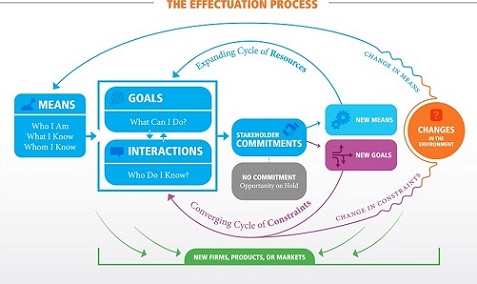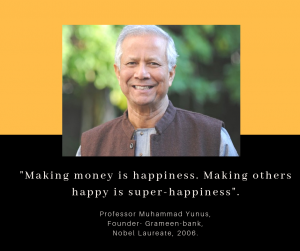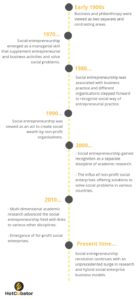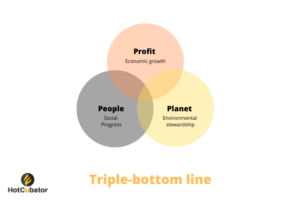
To study social entrepreneurial opportunity, it is important to analyse the what drives the behaviour of nascent social entrepreneurs to undertake social entrepreneurial initiatives. As a researcher of social entrepreneurship, I analysed a range of different theories to explain how social entrepreneurs create opportunities. There are two alternative paradigms that I found quite relevant are – the causation and effectuation theory –
Championed by seminal scholar Saras Sarasvathy, the Causation and Effectuation theory has remained one of the most prominent and highly cited theories to analyse the entrepreneurial behaviour that drives the creating new venture.
The causation process begins with planned strategies and predicts to achieve expected outcome. The planning and analysis required in the causation process assume conditions in which the distribution of outcomes in a group is predictable through calculation or statistical inference. The entrepreneurs in the causation process can clearly define their objectives hence the opportunity recognition process deals with a level of certainty They can evaluate and select opportunities that will potentially maximise returns. It is, therefore, easy to exploit the opportunities by applying pre-existing knowledge and resources. The theoretical foundations for the causation process derive from the rational decision-making perspectives of neo-classical micro-economics.
The effectuation theory, on the other hand, is not driven towards one goal rather stems from the entrepreneur’s personal characteristics and abilities to explore potential areas of opportunity and how well they can build an eco-system of support network. Entrepreneurs following an effectuation approach begin the new venture process with general aspirations to create a new venture, but as they make decisions and observe the results of those decisions, they utilise the new information to change course. Since the future is unpredictable, entrepreneurs using an effectuation approach may try different approaches in the marketplace before settling on a business model. In addition, they are likely to put mechanisms into place that allow them to have some control over the outcome. Under conditions of uncertainty, unique circumstances make it impossible to draw statistical inferences. In addition, there is no feasible way to calculate an expected return for a given course of action. Thus, instead of analysing alternatives and selecting the one with the highest expected return, the entrepreneur selects alternatives based on loss affordability.
After analysing the two theories, I came to the conclusion that social entrepreneurs deal with social problems that are uncertain in nature, therefore, difficult to predict the given odds and understand the opportunities. Between the two alternative theorisation, the effectuation processes are more effective when the future is unpredictable. Therefore, the theory of effectuation is more relevant to examine the behaviour of the social entrepreneurs.
Image courtesy – https://www.effectuation.org/








